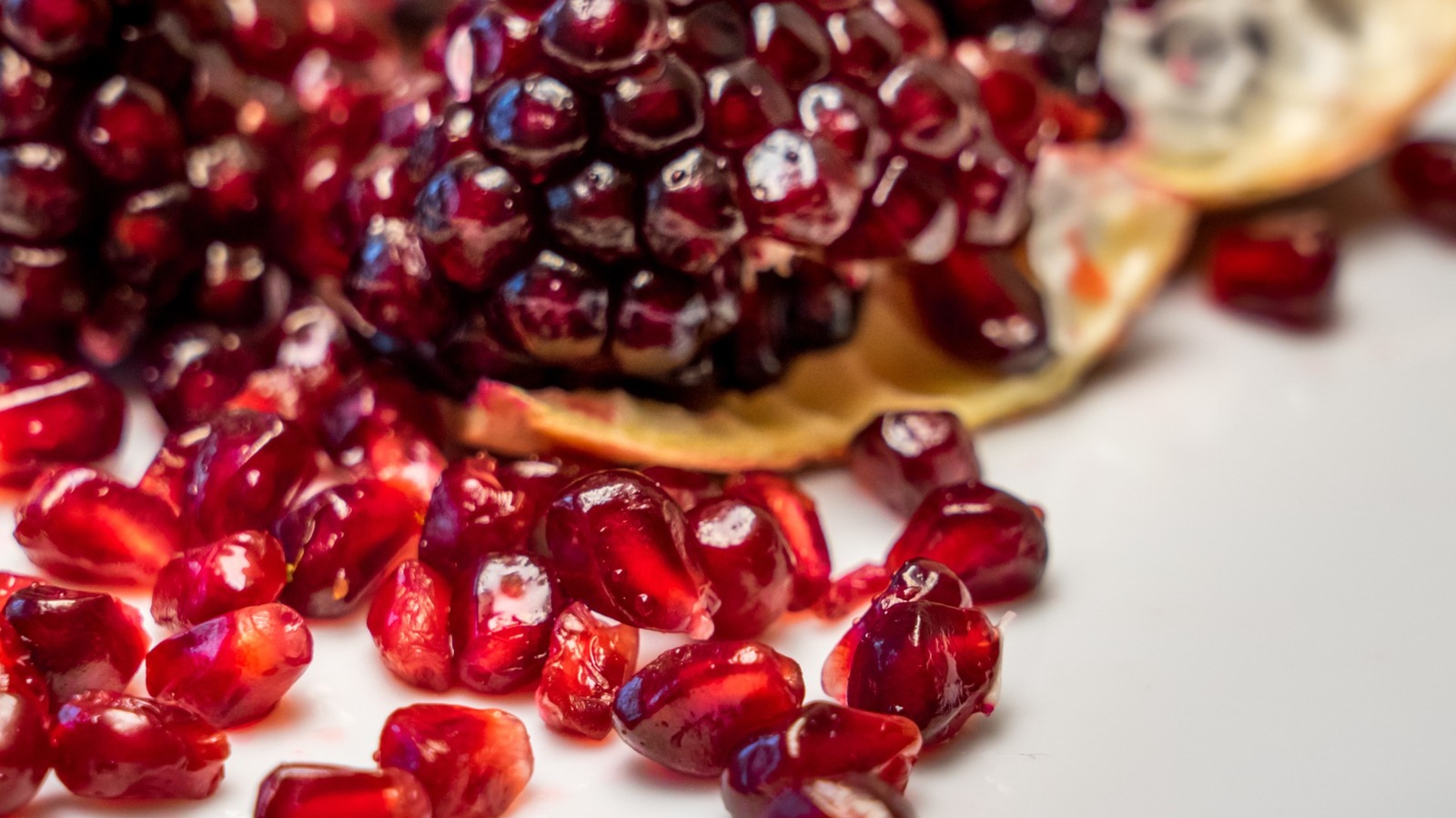
"There's some uncertainty surrounding the edibility of fruit seeds and with good reason - did you know that eating apple seeds can make you sick? Myths like, if you swallow a watermelon seed you'll grow a watermelon in your stomach, don't help, either. But pomegranates are special, because they're almost nothing but seeds. Each fruit is chock-a-block with glistening, crimson-colored jewels about the size of popcorn kernels. These ruby-encased pomegranate seeds look enticing, and, happily, they're absolutely safe to eat."
"In fact, pomegranate seeds are really nutritious - high in fiber, antioxidants, and nutrients such as vitamin C and magnesium. They've even been shown to reduce the risk of heart disease, improve digestion, and support brain health. However, because they're high in insoluble fiber, digestive upset (in the form of diarrhea or constipation) is possible if you eat too many."
"Many people find the actual seed - the tiny, hard, crunchy inner part - to be unpleasant, and spit it out. But not before sucking the sweet-tart juice from the seed's outer crimson casing. But much of the goodness is in the seed, so this slightly defeats the object of eating them. The red covering is widely called an aril, however, according to the National Library of Medicine, it's actually a sarcotesta."
Pomegranate seeds are safe to eat and are packed with nutrients. They are high in fiber, antioxidants, vitamin C, and magnesium. Regular consumption has been associated with reduced heart disease risk, improved digestion, and support for brain health. Because the seeds contain a lot of insoluble fiber, eating too many can cause digestive upset such as diarrhea or constipation. The recommended daily serving is about half of a medium pomegranate, and people with IBS should exercise caution because the seeds are high-FODMAP. Many people discard the hard inner seed after sucking the juice, but the inner seed contains much of the nutritional value. The red outer covering is a sarcotesta, not an aril.
Read at Tasting Table
Unable to calculate read time
Collection
[
|
...
]